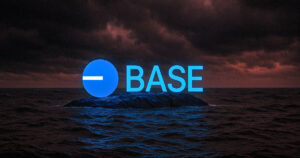OKX relaunches in US with new trading platform and Web3 wallet after major legal settlement

Crypto exchange OKX has officially relaunched its operations in the United States, introducing a centralized trading platform, a new Web3 wallet, and a fresh leadership team, according to an April 16 statement shared with CryptoSlate.
The exchange stated:
“American customers can buy, sell, and convert top cryptocurrencies like Bitcoin, Ethereum, USDT, and USDC, while also connecting traditional finance with crypto through seamless local bank account integrations.”
The move marks a significant milestone for the exchange following its recent $504 million legal settlement with the US Department of Justice.
Since then, the company has implemented a robust compliance framework, including full know-your-customer (KYC) procedures and enhanced fraud detection systems to meet regulatory standards.
US expansion
OKX has set up a new US headquarters in San Jose, California, signaling a long-term commitment to building within the American market.
The exchange stated that it views the US as a vital part of its global strategy to stay ahead of regulatory developments.
According to the company, its relaunch will involve a phased rollout that will begin with migrating current users to its new platform. New users will be onboarded gradually, with a broader launch planned later this year across most US states.
To support this expansion, OKX has introduced a self-custody Web3 wallet for US customers. The wallet supports over 130 blockchains and includes tools for swapping tokens, bridging assets between networks, and exploring NFTs and decentralized applications.
As part of its relaunch, OKX has appointed Roshan Robert as its US Chief Executive Officer. Robert, a former Barclays executive, brings years of financial leadership experience to the role.
Roberts added:
“We’ve built a comprehensive, risk-based global compliance program that includes enhanced due diligence, a robust KYC process, customer risk rating systems, advanced fraud detection, AML tools, geo-blocking, and market surveillance technologies. These are all part of our commitment to a secure, compliant trading environment.”
Mentioned in this article








